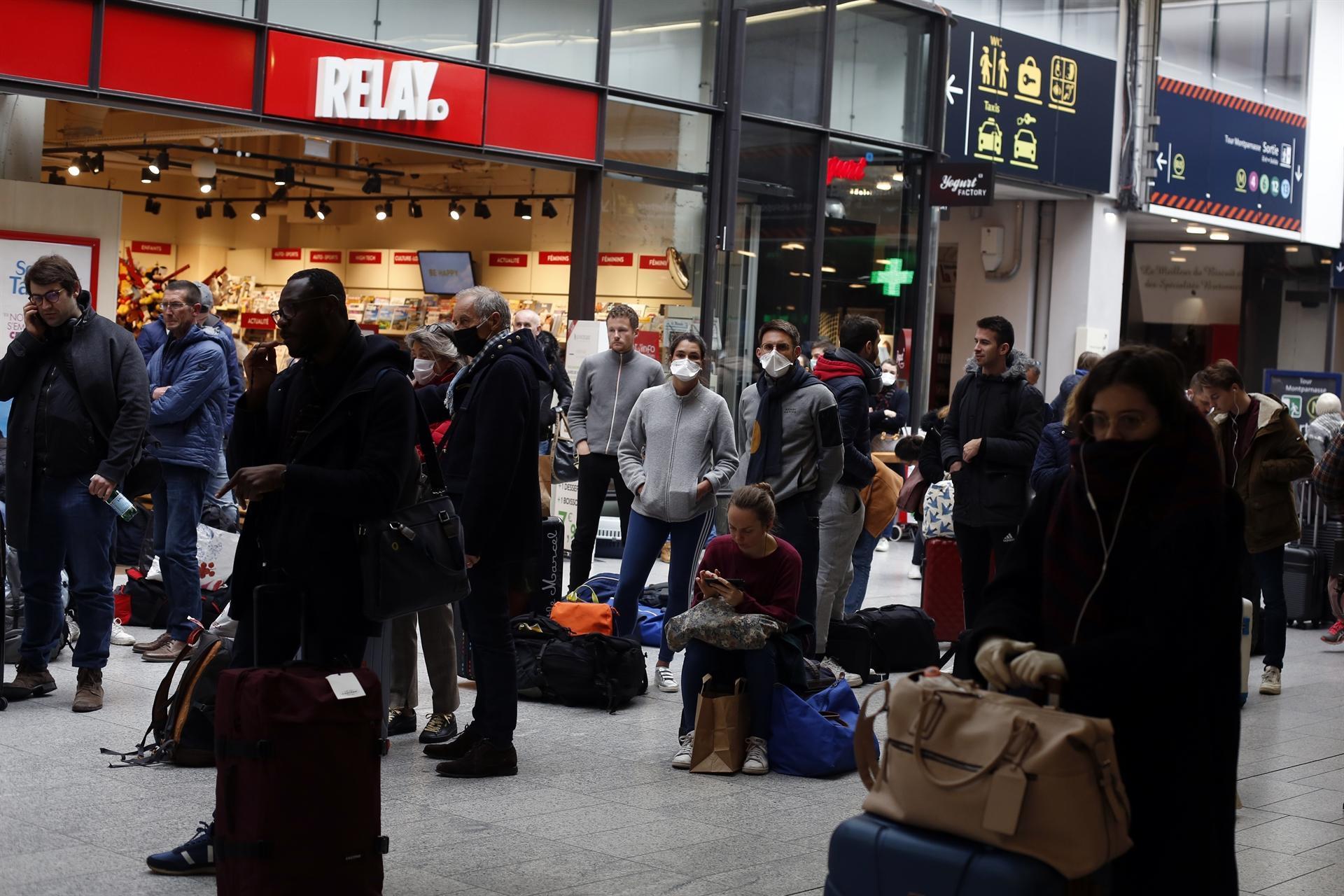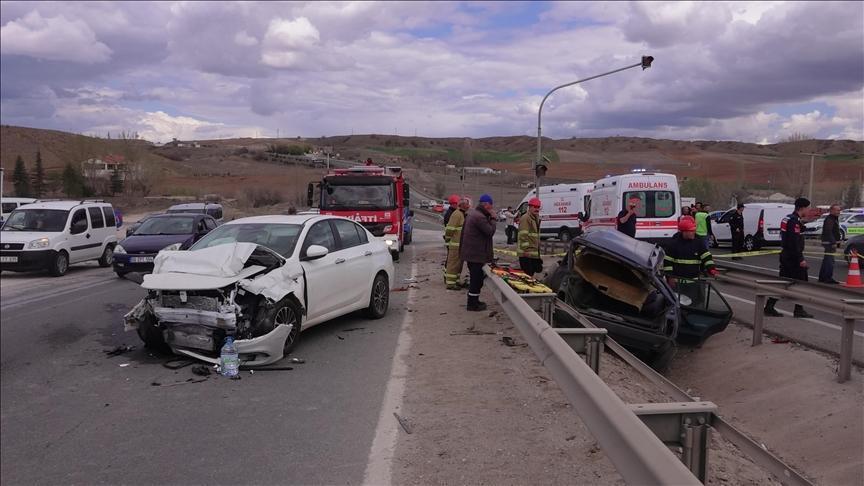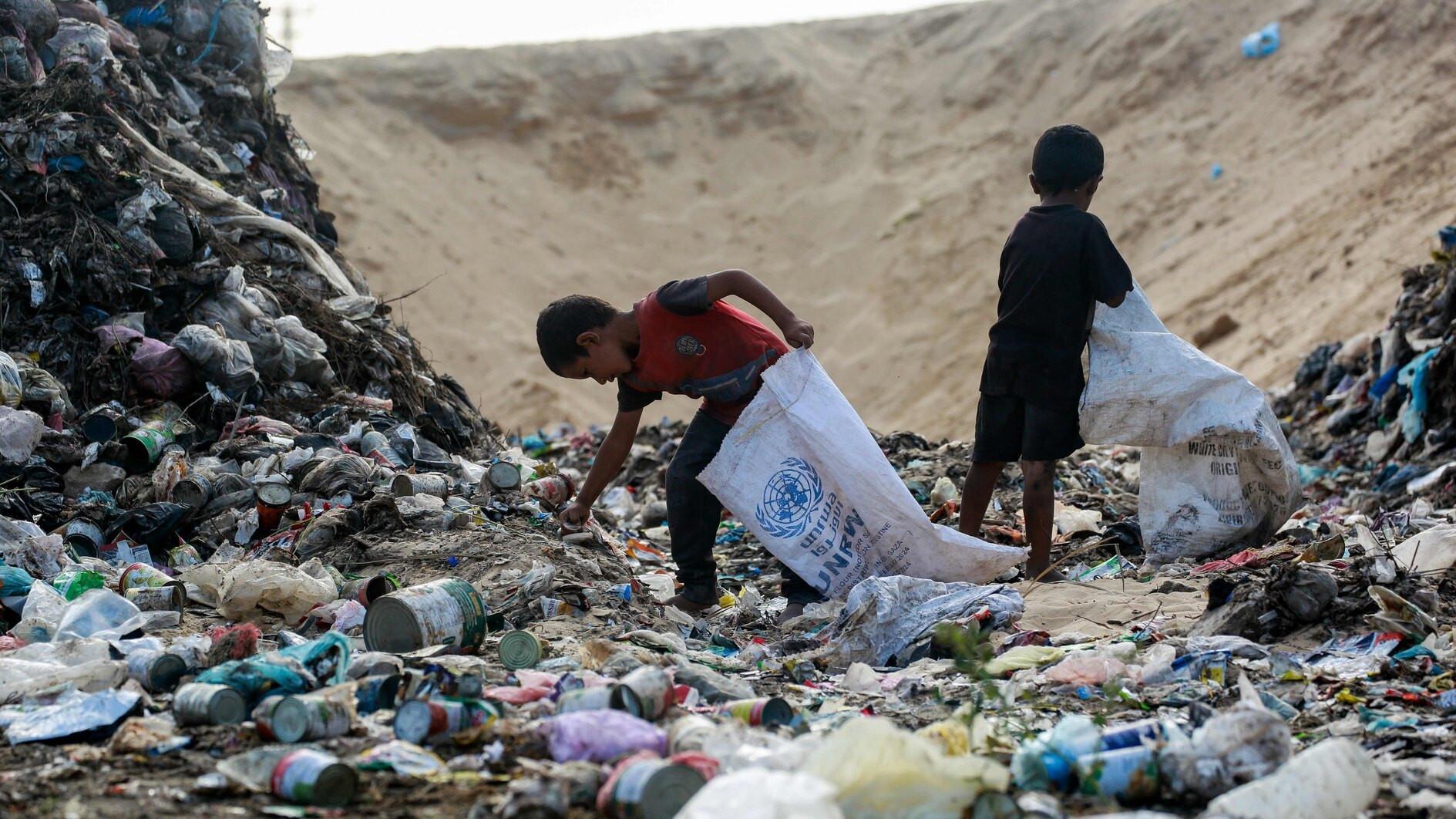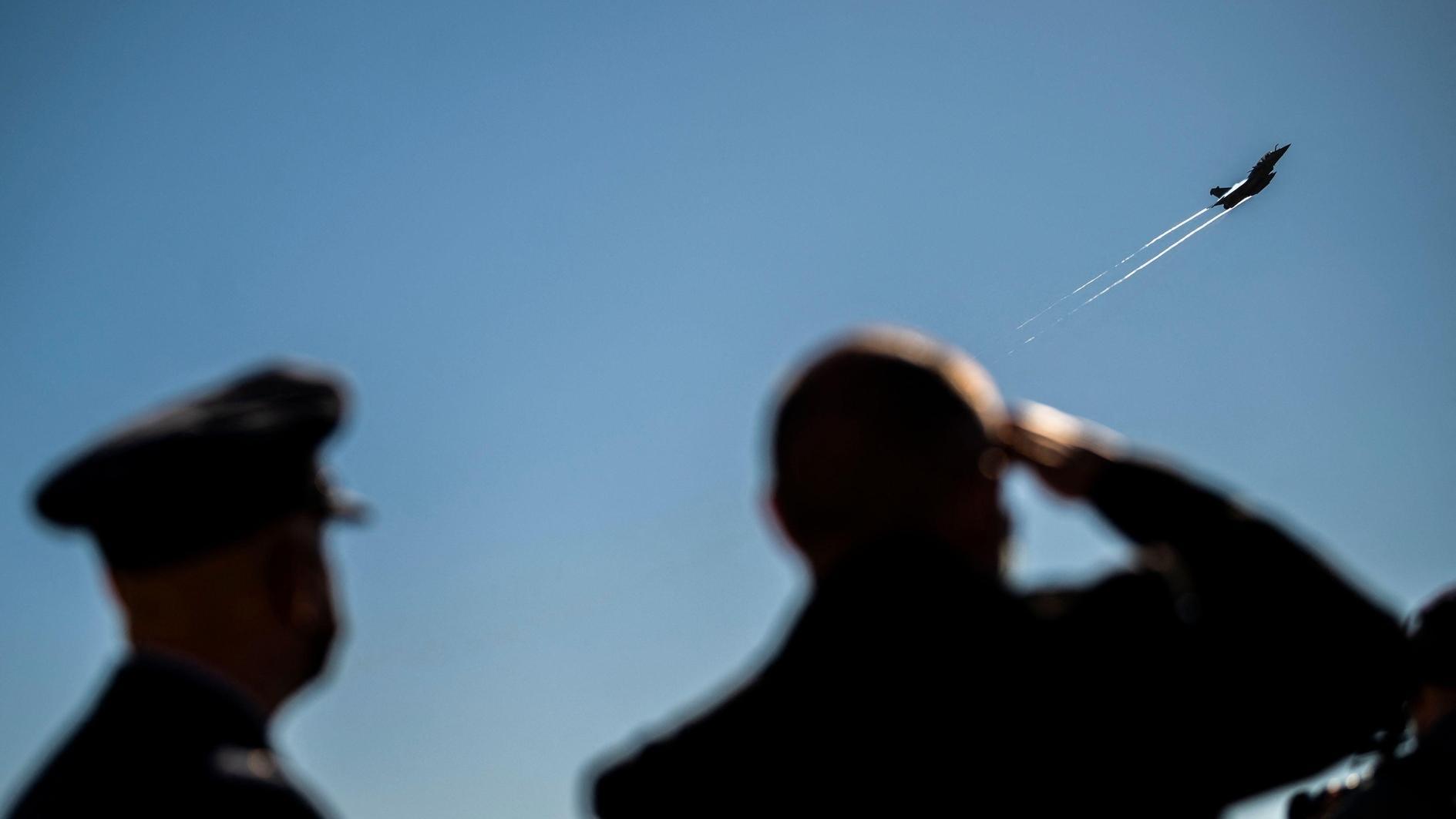Fear and panic in Paris: Op-ed
Dilara Diner Özata

People wait at the Montparnasse railway station, in Paris, on March 17, 2020 (AP Photo)
The week started in France with some kind of panic concerning the events to come. During the previous week, the education minister had told on every possible media they were not going to close down schools, even last Thursday morning. Yet the president did, on Thursday night. Next were the shops. “At the moment, we have no intention on taking Italy’s confinement steps,” said the politicians on radios. Yet they did. Then there were the municipal elections that were still going to take place on Sunday. This sounded weird, and people on Twitter and on TV were criticizing this measure.
As we went out on Sunday to see if the street market was open, we realized that people were living as if nothing had changed; well, partly. The market was as full as usual, some were wearing masks and gloves, others weren’t. Were we panicking for nothing? People around us seemed fine. This felt like any other Sunday. The parks were full and the weather was nice, the cafes were closed but everyone seemed to be enjoying the day. Meanwhile, the shops seemed fuller than usual, so we couldn’t quite grasp the ambiance. As we went in the supermarket we realized that the shelves had been emptied. No more pasta or canned food, no more toilet paper, no more cheese…
People had raided everything. There was a paradox concerning people’s behavior.
On Sunday night media channels were showing images of Parisians strolling by the Seine, doing picnics, laughing and playing guitar… At this point, government officials were very critical of people’s careless behavior. It felt like we were little kids who had been naughty and our father, the president, was going to punish us tomorrow.
On Monday, everything changed. As we went out, we discovered a chaotic Paris. There were huge lines in front of supermarkets, pharmacies and tobacco shops. Most people were respecting the one-meter distance. The supermarkets had decided to take a certain amount of people at a time so you had to wait for your turn to get in. People were panic buying, and so were we. Everyone was trying to avoid each other but aggressively buying anything they found. We were hearing people cough and it felt like the soundtrack of a scary movie.
This was it. We were going to be told to stay home as of tonight. Were we ready? Did we have enough food? The lines were getting longer and everyone seemed to run from one market to another. It felt like we were in a movie depicting the end of the world. Our finances had taken a blow, but what could we have done? We felt we had no choice. Could we stand a few more months spending money without being able to work? The government had spoken of a partial unemployment salary, but we didn’t know who was eligible and who was not. As we came back home, we received messages from various WhatsApp groups. Everyone was in panic. Most were saying this measure should have been taken sooner. Everyone was scared of running out of food. How long was this going to last? One month? Two months?
Germany wasn’t going to help. Was this the end of the European Union? The messages were filled with paranoia and became senseless after a while.
At 8 p.m., it was official. We were to remain home for at least 15 days. Electricity, gas and water are going to be free this month. No taxes either, and the state would pay our rent. As for work, they were going to pay us a partial unemployment salary. This was reassuring – for now.
The WhatsApp messages stopped. Marianne was firm but fair. But for how long? Nobody knows.
















